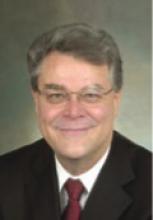Three years after the U.S.-led invasion of Iraq, psychiatrists on the home front are dealing with the war’s neuropsychiatric casualties. We are seeing veterans, their families, friends, and acquaintances, whether we practice in VA medical centers, military medicine, or the community.
To help us, Drs. Timothy Lineberry, Sriram Ramaswamy, J. Michael Bostwick, and James Rundell offer tools to screen for and treat combat-related posttraumatic stress disorder, including PTSD of military sexual trauma. Dr. John Daniels tells which medications may do more harm than good for patients with traumatic brain injury.
World War II brought psychiatric disorders home, showing that not just “crazy people” develop psychiatric symptoms. A half-million U.S. troops were admitted for psychiatric care in overseas hospitals alone.1 Americans began to accept that anyone under extreme conditions could become psychiatrically ill.
Today, there are many ways to feel about our involvement in “Operation Iraqi Freedom” but only one way to feel about the dedicated men and women serving there. They deserve our respect, our love, and all our knowledge and skill to help them deal with the trauma they have endured for us all.


